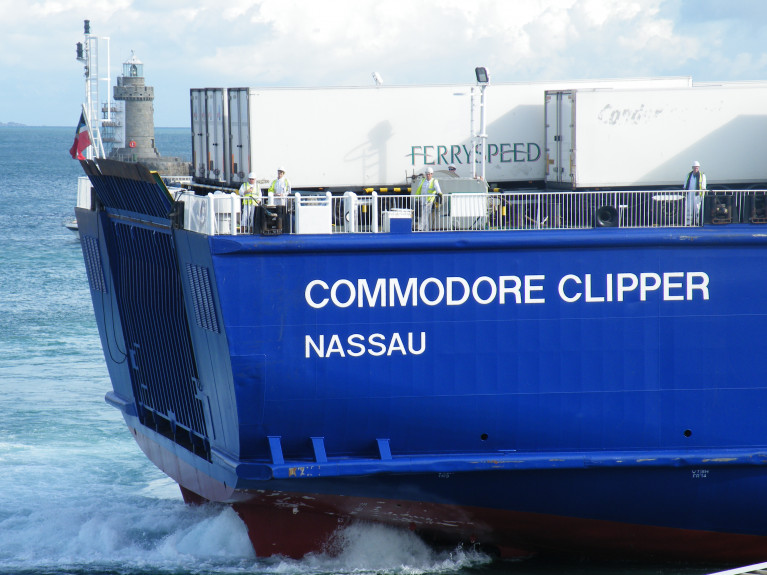Displaying items by tag: Covid19 measure
Channel Islands Operator Condor Ferries Achieve International Accreditation for Covid-19 Measures
English Channal operator, Condor Ferries (which Brittany Ferries acquired as part of a consortium) has become the first international ferry company to be recognised for steps taken to safeguard passengers, employees and crew against Coronavirus.
The accreditation has been awarded by DNV GL, the world’s leading classification society, which has audited Condor’s safety management systems, communications material and other measures introduced since March of this year. The assessment recognises the efforts of the company in safeguarding crews and essential passengers carried on its freight ships. (among them above ropax Commodore Clipper. See related cargo: 'Jersey Royal' potatoes).
Elwyn Dop, Condor’s Operations Director, said: “This is a very positive and important endorsement of our unrelenting effort to ensure the right safety protocols are in place to ensure the delivery of lifeline services to the Islands. I would like to thank the team for their meticulous planning and attention to detail which has led us to being recognised in this way.”
“Ensuring the health and safety of their crews and passengers is a priority for ferry operators. The DNV GL’s COVID-19 Statement of Compliance was developed to help these companies demonstrate that they have adopted effective COVID-19 measures, as their services are now running again after the lockdown. We are pleased to award Condor with this international accreditation and to ensure that their ferries continue to operate in the safest conditions,” says Torgeir Sterri, West Europe Regional Manager, DNV GL – Maritime.
Condor, which sails from Poole and Portsmouth to the Channel Islands and St Malo, France, has welcomed more than 5,600 passengers onboard its ferries since services resumed earlier this month, with customers reassured by the new safety measures put in place. The company has received many compliments and positive feedback.
The ferry firm introduced a range of measures due to Covid-19 including an enhanced hygiene procedure which increases the frequency of cleaning in line with up-to-date international guidance and all staff issued with additional Personal Protection Equipment.
Other protocols comprised of mandatory face coverings for all passengers aged over 11, self-service for food and beverage, floor-distancing markers and protection screens installed plus contactless payments for shopping onboard. At all ports, passengers are notified to check in earlier than usual to ensure safe embarkation.
These measures have been successfully used on Condor’s conventional and high-speed passenger services from the UK and France.
Among the high-speed craft Afloat adds is the Austal-built Condor Liberation which entered service in 2015.
In addition for ferry enthusiasts Afloat reflected on Condor Freight's predecessor Commodore whose 70th anniversary freight operations included a ro-ro ferry that previously was chartered to Irish Sea operator B+I Line in 1981.




























































